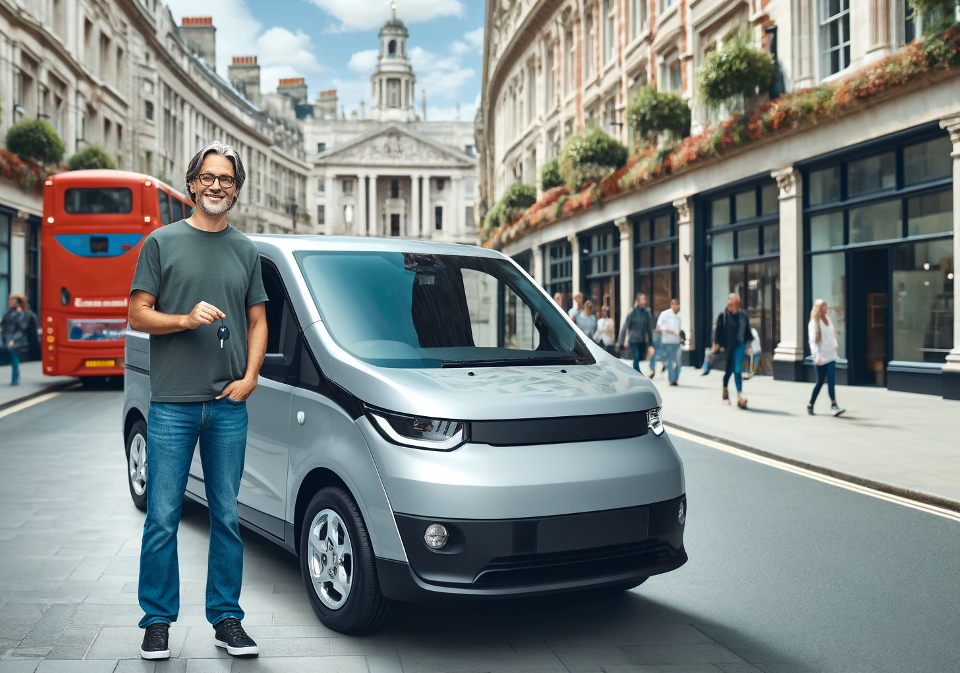I’ve never actually bought a van. But We Are Acuity have been supporting Light Commercial Vehicle (#LCV) sales for over 20 years. So we’ve picked up a thing or two about what’s involved.
So, is buying a new #van in 2024 more complex than buying a new #car?
Without the right support & information from the manufacturer, it can be.
Differences stem from the distinct purposes, operational needs, & market dynamics associated with LCVs.
Specific Use Cases and Requirements.
1. Purpose-Driven Purchase:
Vans: Primarily bought for business needs such as transporting goods, equipment, or passengers. Buyers need to consider factors like payload capacity, cargo space, durability, and customisation options (e.g., shelving, refrigeration units).
Cars: Typically purchased for personal use, with decisions based more on aesthetics, comfort, fuel efficiency, and brand preference
2. Operational Considerations:
Vans: Buyers must evaluate how the vehicle will be used daily, including the distances covered and the frequency of stops. For electric vans, range and charging infrastructure are crucial considerations. Many vans require specific customisations for business use, which can complicate the buying process.
Cars: Whilst fuel efficiency, maintenance and reliability, performance and handling, comfort and convenience, usage patterns, cost of ownership, and environmental impact are important, the decision is more likely to be a subjective one based on the buyer's personal opinion.
Regulatory and Compliance Factors.
1. Environmental Regulations:
Vans: More heavily scrutinised for emissions, especially in urban low-emission zones. Businesses must ensure compliance with these regulations to avoid penalties.
Cars: While also subject to emissions standards, the impact on personal car buyers is typically less immediate and stringent compared to commercial vehicle regulations.
2. Tax Incentives and Rebates:
Vans: Buyers often need to navigate complex tax incentives, rebates, and grants available for commercial vehicles, particularly electric vans. Understanding and applying for these incentives requires additional effort.
Cars: Personal vehicle incentives are generally more straightforward, with widely advertised government grants for electric cars simplifying the process.
Financial and Logistical Challenges.
1. Cost and Financing:
Vans: Higher upfront costs for electric vans can be a barrier, and businesses need to evaluate the total cost of ownership, including potential savings on fuel and maintenance. Fleet purchases involve significant financial planning.
Cars: The financing process for personal cars is usually more straightforward, with a wide range of consumer financing options and a more established market for trade-ins and sales.
2. Availability and Lead Times:
Vans: Supply chain issues and high demand for specific types of commercial vehicles can result in longer lead times. Customisations and specific model requirements can further delay delivery.
Cars: The car market is more mature and diverse, with shorter lead times and greater availability of models across different price ranges.
Support and After-Sales Service.
1. Service and Maintenance:
Vans: Businesses need to consider after-sales service, availability of parts, and maintenance packages. Reliable service is crucial for minimising downtime and maintaining business operations..
Cars: While after-sales service is important, the impact of service issues is typically less critical for personal use compared to business operations.
Brand and Market Dynamics.
1. Brand Reputation and Support:
Vans: Buyers prefer brands with a proven track record, strong support networks, & comprehensive service packages like Renault Vans PRO+ UK, IVECO, Volkswagen Commercial Vehicles UK and Ford Pro UK.
Cars: Brand preference can be influenced more by personal taste, aesthetics, and brand loyalty, with less emphasis on operational support.
2. Emerging vs. Established Brands:
Vans: New entrants like B–ON, Canoo, BYD EUROPE, Nextem e-Mobility Limited, Farizon Auto, London EV Company (LEVC), Kia UK Limited add further complexity. Assess reliability and long-term support of new players.
Cars: While new brands are also entering the car market, the decision-making process remains more focused on personal preferences and experiences.
How can things be made easier?
With the complexities of buying, manufacturer support is crucial. Detailed information in Price & Specification guides, highlighting benefits, test drives, and financing solutions, can simplify the process.
We've been providing such guides for years. See our latest LCV Case Study or get in touch to see how we can support your commercial vehicle brand.
If you work within the Commercial Vehicles sector, be it a retailer or at brand level, we’d love to talk about the future of your marketing. Why not schedule a FREE 30-minute assessment of your approach and plans here? It will be well worth your time.
Or alternatively read more about Local Marketing on our blog page "Local Thinking': https://www.weareacuity.com/local-thinking-our-blog











